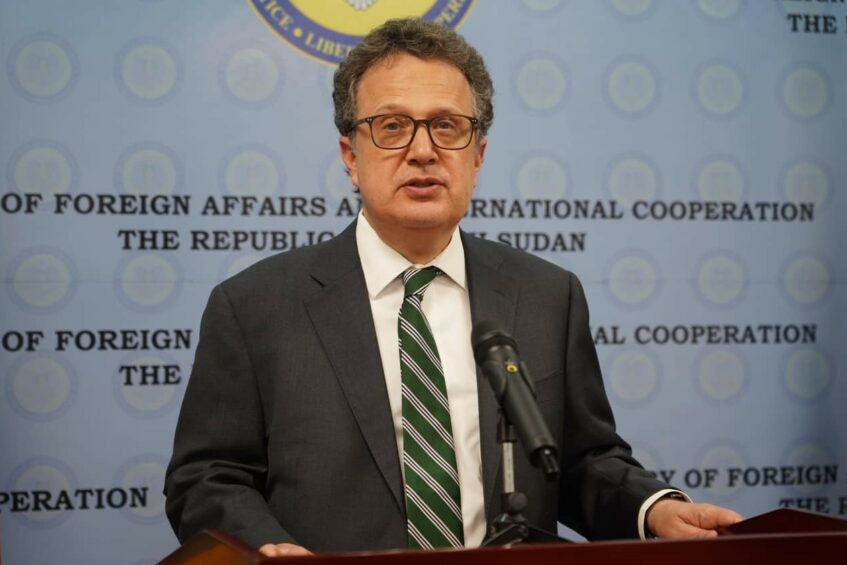You are here: Home | Humanitarian | News | U.S. humanitarian assistance must not be used to pay tax: Adler

US Ambassador to South Sudan Michael J. Adler. (-)
The United State ambassador to South Sudan has expounded that funding from his country intended to support vulnerable populations in South Sudan must not be used to pay taxes to the government.
Michael J. Adler said efforts to use US assistance to extract government revenue are not authorized and may lead to consequences for South Sudan, where millions are in need of humanitarian aid.
His remarks come days after western embassies in Juba urged the transitional government to halt newly imposed taxes and fees on humanitarian agencies immediately.
The embassies of Canada, the European Union, France, Germany, Japan, the Netherlands, Norway, Sweden, Switzerland, the United Kingdom, and the United States expressed concern over the imposed costs hindering humanitarian aid efforts in South Sudan.
The diplomatic missions cited examples of current efforts to impose costs on humanitarian assistance, including the ePetroleum Accreditation Permit, customs fees, and charges, the electronic cargo tracking note, laboratory tests on food rations, and security escort fees.
The embassies stated that attempts contradict international practice and South Sudanese law.
They emphasized that international conventions dictate exemptions for the UN and its specialized agencies, diplomatic missions, and other international donors, along with their contractors, grantees, and implementing partners in South Sudan from such taxes.
These exemptions cover excise duties, customs duties, and fees, as well as any other taxes, charges, and fees levied on goods and services directly associated with diplomatic missions or projects funded by donors.
They argued that the imposition of such costs by the transitional government diverts life-saving aid away from those in dire need.
US envoy Michael J. Adler also said extracting fuel taxes from the United Nations Mission in South Sudan and other partners is a serious concern.
“I raised serious concerns about the effort to extract fuel taxes from the United Nations Mission in South Sudan, UN agencies, and other partners,” Adler said to the media, after meeting Vice President Hussein Abdelbagi in Juba on Tuesday.
“I also noted that donor funding from the United States must not be used to pay taxes and that efforts to use US assistance to extract government revenue are not authorized and will be consequential.”
In March 2024, the UN Office for Coordination of Humanitarian Affairs reported that nine million people require humanitarian assistance in South Sudan this year.
OCHA said the country continues to grapple with an escalating humanitarian crisis marked by subnational violence, climate change, displacement, and soaring living costs, pushing millions of families into food and nutrition insecurity.
The UN Mission in South Sudan (UNMISS) is considering scaling down its security operations across the country due to fuel supplies held at the border with Uganda over the issue.
At the same time, UNMISS said it is responding to rising inter-communal conflicts in Western Equatoria and Eastern Equatoria, where it has deployed additional peacekeepers to reinforce its bases.
Support Eye Radio, the first independent radio broadcaster of news, information & entertainment in South Sudan.
Make a monthly or a one off contribution.
Copyright 2024. All rights reserved. Eye Radio is a product of Eye Media Limited.